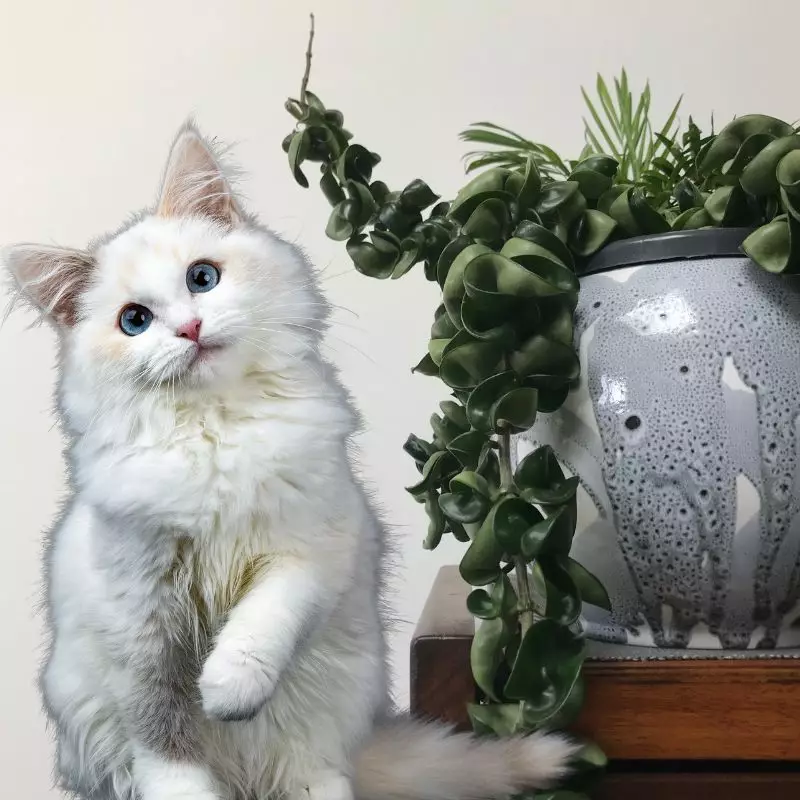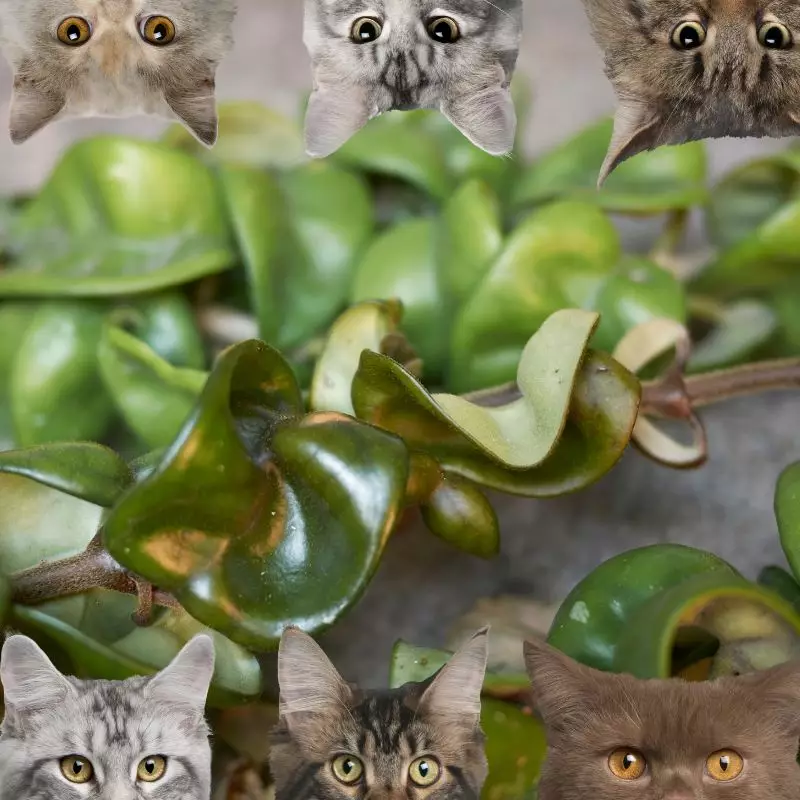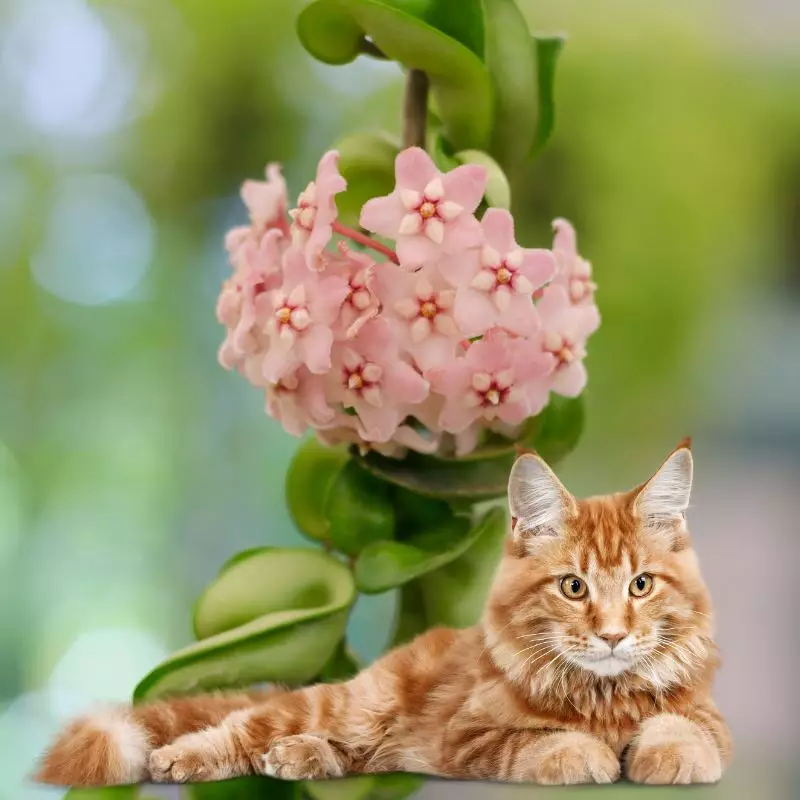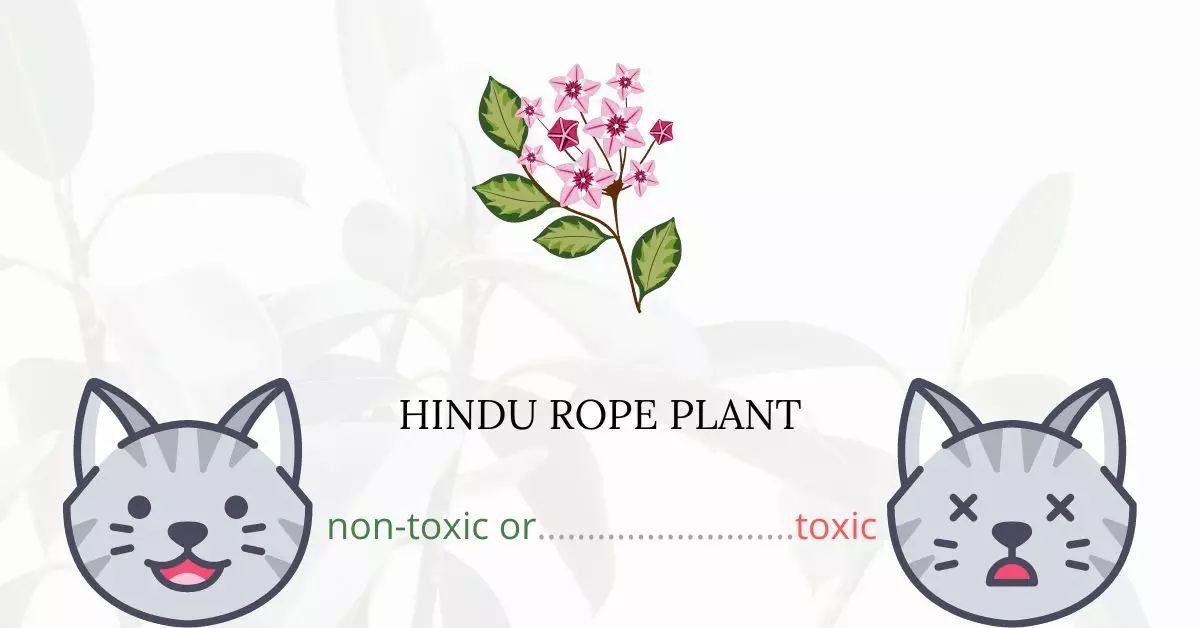The straightforward answer to whether Hindu Rope Plants, also known as Hoya Rope Plants, are toxic for cats is: no, they are not toxic. These plants have no known adverse effects on either people or animals.
In crafting this article, we have collaborated closely with a team of experienced DVMs (doctors of veterinary medicine). Their invaluable insights and contributions ensure that we provide accurate and up-to-date information on the potential risks associated with various plants, including the Hindu Rope Plant, and their effects on cats. Additionally, our findings have been cross-referenced with high-authority websites such as ASPCA and PetMD to confirm the safety of Hoya plants for cats.
It is worth noting that, according to the University of Connecticut and ASPCA, hoyas are non-toxic indoor plants that are safe for cats, and there haven’t been any reported cases of Hoya plants causing harm to felines.
Can Cats Eat Hindu Rope Plant or Hoya Rope Plant?

The leaves are safe for your curious cat to nibble on because they are not poisonous. Although this might not be hazardous to cats, any fertilizers or pesticides put on or near the plant could be dangerous. Large quantities of hoya can potentially cause gastrointestinal obstruction, however, because most cats seem to prefer plants with strappy leaves, it is best to avoid them.
What is Hindu Rope Plant or Hoya Rope Plant?

The curly-leaved Hindu rope plant, also known as the porcelain flower or wax plant, is Hoya carnosa “Compacta” or “Krinkle Kurl” (Hoya carnosa). This semi-succulent, perennial vine species is renowned for its showy blossoms, distinctive curled vines, and luscious, waxy foliage. They are considered to be easy to care for, slow-growing, long-lived, and excellent for beginner plant lovers. They are native to East Asia and Australia but are most frequently kept as houseplants in North America. Another feature that makes this plant well-liked is its lovely, fragrant, tiny star-shaped flowers in a pinkish-white color. They form in clusters the size of balls and grow from early spring through the summer. Healthy plants flower a lot, and the flowers might last for a few weeks.
Keeping Cats Away From Hindu Rope Plant or Hoya Rope Plant

There are certain methods to make cats resent your houseplants, whether they are devouring them or using them as a litter box. Possessing a water spray bottle close at hand is the finest training method to prevent cats from eating indoor plants. Since cats don’t like having water on them, all you have to do is spritz them.
The quickest fix is to relocate your plants out of reach. Use plant hangers suspended from the ceiling or try creating floating shelves. In contrast, it could be advisable to store heavy plants in a room that is off-limits.
Plants to Avoid For Your Cats
If you are a cat owner and unsure if the plants growing in your yard are harmful to your cats, check out this list of toxic plants for cats. You can also check our list of non-toxic plants for cats.





